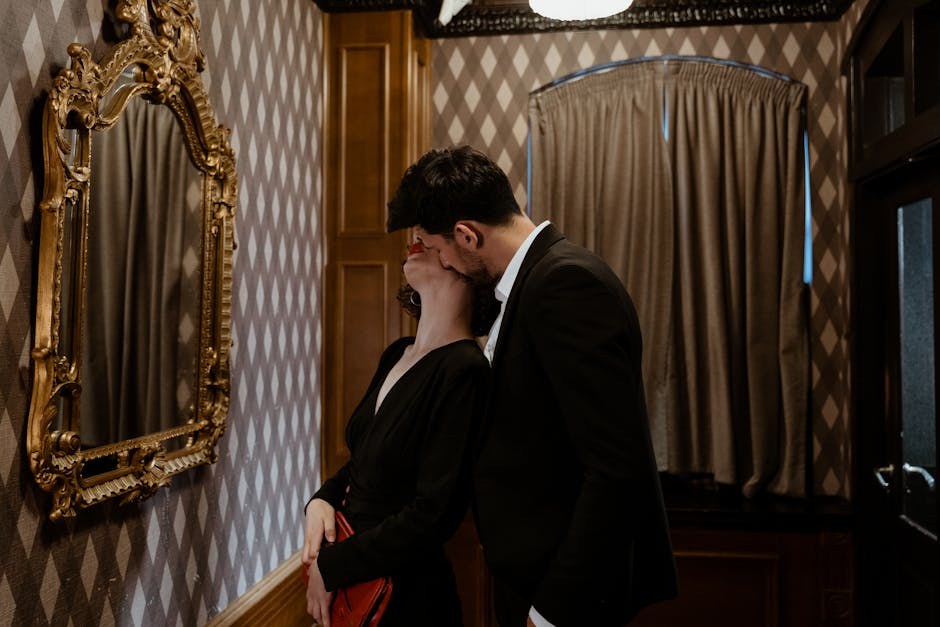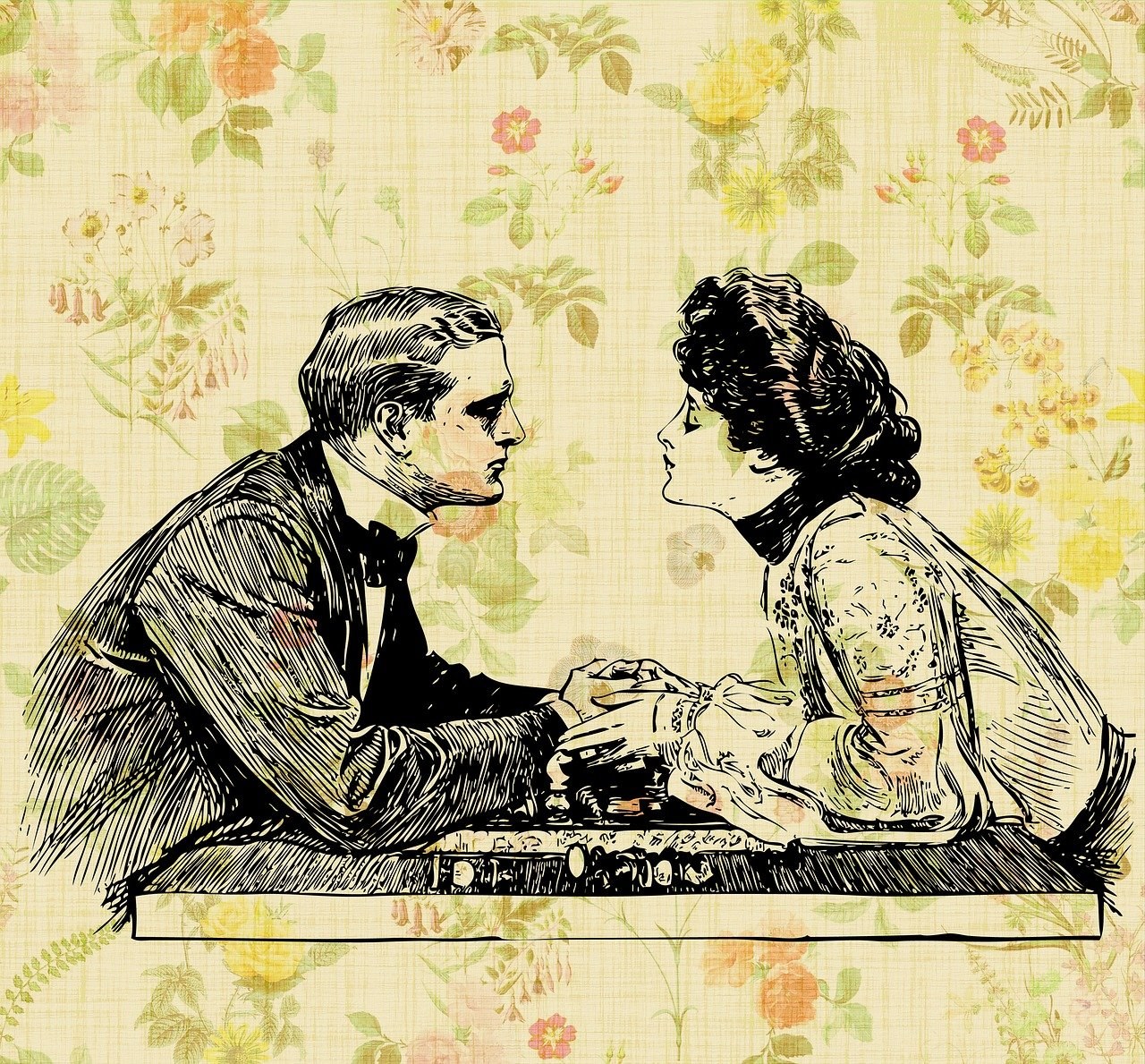Ending something that was never meant to be permanent can feel strangely permanent – especially when the something is an affair. People often assume the beginning is the complicated part, yet the start is usually effortless: two people cross paths, attraction sparks, and boundaries slip. The difficulty arrives later, when the need to step back from the affair collides with powerful feelings, secrecy, and split loyalties. If you have asked yourself why letting go keeps stalling, you are not alone. What follows re-frames familiar reasons in clearer language, so you can recognize the patterns that make an affair feel unbreakable and, in time, choose what to do next with more honesty and steadiness.
How an affair becomes so sticky – and why clarity fades
An affair often begins as a bright contrast to whatever feels dull, heavy, or stalled at home. That contrast amplifies every sensation – attention feels brighter, sex feels riskier, compliments land harder. Over weeks or months, the secret connection can start to function like a parallel life. You may find yourself living in two realities at once, drifting between them as if in a fog – some people call this affair fog because perception narrows around what feels good and blocks out what feels costly. In that narrowed view, ending the affair seems irrational, even when you know the situation cannot last. The reasons below explain why the exit ramp is so hard to take.
-
It fills a private emptiness you have not named
Affairs rarely grow out of a relationship that feels fully cared for. More often, there is a quiet ache underneath everyday life – loneliness inside a partnership, stalled intimacy, unresolved resentment, or a sense that no one is really seeing you. The affair seems to patch that inner gap. The attention is immediate; the validation is concentrated; the sex can feel like proof that you are alive. Because the affair appears to soothe the ache, ending it can feel like pulling away a crutch before your leg has healed. You are not just letting go of a person; you are letting go of the quick fix the affair has provided.

When a connection acts like a patch, the fear is that the wound underneath will open. That fear is one reason you may cling to the affair even while acknowledging its fallout. Naming the emptiness – instead of racing past it – weakens its hold, and makes the next steps possible.
-
It can feel like destiny – because intensity is easy to confuse with truth
Secrecy turns the volume up on chemistry. You meet in stolen moments, the world shrinks to a private bubble, and every touch seems charged. Inside that bubble, you might tell yourself the connection must be fate. The story is tempting: if this feels extraordinary, then surely it means something extraordinary. Yet a heightened state is not the same as a sustainable life. The affair’s container – brief meetings, delayed texts, dramatic reunions – magnifies feelings and can trick you into believing you have discovered a perfect match. Leaving then feels like walking away from destiny, when in fact you are stepping out of a magnifying glass.
The distinction matters. When you see how the circumstances inflated the bond, you can see the person more clearly – and consider whether the relationship could breathe in daylight rather than in a shadowed corner.

-
Reality looks drab by comparison – and that contrast scares you
An affair often works like a vacation from obligations. If you feel overburdened by work, parenting, or caretaking, the affair may be the only place where nothing is asked of you except to show up and enjoy. Of course the daily routine seems gray when set against an island of pleasure. Ending the affair, then, can feel like checking out of the only hotel where you rest. The fear is not only the loss of the person; it is the dread of returning to an ordinary life that feels depleted.
Recognizing the comparison game helps. Real life will never compete with concentrated escape, and it is unfair to demand that it should. Seeing the contrast for what it is – a trick of lighting – makes it easier to step toward changes in your real life rather than hiding inside the affair.
-
Human bonds resist clean cuts
Once you invest attention, stories, touch, and time, your nervous system maps another person as familiar. That mapping does not vanish because you decide the situation is unsustainable. The bond carries rituals – the messages at a certain hour, the places you meet, the inside jokes – and those rituals become threads that stitch your days together. Pulling the threads out leaves empty spaces. Even when you are committed to ending the affair, your body may still reach for those rituals, as if muscle memory could overrule your mind.

This is not a sign that you are weak; it is a sign that connection works as designed. Bonds take time to loosen, and they often loosen unevenly – you may feel resolute in the morning and undone by afternoon. Expecting that unevenness reduces shame and makes persistence more likely.
-
The rush trains your brain to want more
Risk, novelty, and anticipation are powerful. The secret glance across a room, the countdown to the next meeting, the story that only the two of you share – these cues can light up the reward pathways in your brain and create a loop of seeking and relief. Over time, the loop can become persuasive: you start to crave the high of the next message, the next kiss, the next escape. When you try to end the affair, withdrawal hits – not only emotionally, but physically, in the form of agitation, restlessness, or sleeplessness. It is no surprise that many people reverse their decision during those first waves.
Understanding this loop does not remove it, but it helps you ride it out. The early days without the affair are the loudest; the noise fades when you stop feeding the cycle with one more secret hit.
-
Guilt toward the lover complicates a clean goodbye
Ending any intimate tie means choosing the discomfort of hurting someone. In an affair, that discomfort can feel amplified, because you and your lover have shared confidences in an unusually intense container. You might have promised things in the heat of closeness – future plans, dramatic vows, assurances that the situation would resolve in your favor. When you decide not to keep going, guilt can surge. You imagine the look on their face, the messages they might send, the grief they will carry. Carrying that imagined pain is heavy, so you postpone the decision and stay inside the affair to avoid it.
But postponement is not neutral – it is a choice that enlarges the eventual hurt. Accepting that truth can be the first honest act after a long string of concealments.
-
Fear of exposure – and retaliation – keeps you frozen
Some affairs live inside explicit promises: “I’ll leave,” “We’ll be together,” “Just give me time.” If you reverse course, you may fear your lover’s reaction – anger, threats to reveal the secret, or attempts to disrupt your home life. Even without explicit threats, the simple risk of discovery can make you cautious about any decisive move. You rehearse conversations in your head and imagine worst-case outcomes, which makes the current limbo feel safer than action.
While fear is understandable, being led by it traps you in a holding pattern that prolongs stress for everyone involved. Clarity often requires tolerating the possibility that others may be upset – and trusting that honesty is more stable than ongoing concealment.
-
Avoiding personal work makes the affair look indispensable
It is easier to chase external relief than to face internal knots. Perhaps you have long-standing patterns – people-pleasing, conflict avoidance, perfectionism, or a fear of dependence – that have shaped the way you relate to partners. The affair allowed you to sidestep those patterns for a while. But sidestepping is not the same as resolving. When you consider ending the affair, the unresolved patterns rise like a tide, and it feels safer to swim back to the raft you know. That is why the affair can look like the only thing keeping you afloat: it is functioning as a distraction from work you have not wanted to do.
Turning toward that work – naming the patterns, tolerating discomfort, practicing directness – reduces the affair’s grip. Whatever you decide about your relationship, the skills you build here will matter beyond this moment.
-
Your lives have threaded together in practical ways
Over time, a secret relationship can become woven into your daily schedule. You adjust commutes to pass a certain café, invent alibis that create regular windows, swap songs and podcasts, exchange advice about work or family. You may even share overlapping social spaces – a team, a class, a neighborhood. These threads make the affair feel less like a separate bubble and more like part of your ordinary routine. Untangling them is real labor. Ending the affair then requires reworking calendars, habits, routes, and micro-rituals that you barely notice until you try to remove them.
Because the threads are everywhere, the separation feels bigger than it looks on paper. Expect that bigness, and the task becomes possible piece by piece.
-
It is still a breakup – even if it was never public
People sometimes dismiss their own grief because the relationship was hidden. They tell themselves they have no right to feel loss. But your body does not grieve according to legal status; it grieves according to attachment. If you shared intense experiences with someone, ending the affair can produce the same hallmarks of heartbreak that accompany any breakup: waves of sadness, anger, bargaining, and longing. Minimizing this reality adds shame to pain and can draw you back toward the affair just to silence the ache.
Allowing grief to exist – without giving it the steering wheel – is one of the most compassionate choices you can make for yourself and everyone affected.
-
Indecision feels safer than a decision that might hurt
When both paths carry pain, people often pause on the median. You might think: what if the affair really is my best chance at happiness? What if leaving my primary relationship is a mistake? What if I end the affair and regret it forever? These questions multiply until doing nothing looks like wisdom. But in situations like this, inaction is simply a quiet action – it keeps the affair alive and asks your future self to pay the bill.
Clarity does not require certainty; it requires honesty about your values and the ripple effects of your choices. When you define what matters most, the fog thins. The path you choose may still sting, yet it will line up with the life you can actually live in the open.
-
A third perspective helps you hear your own voice
Self-reflection is hard to do in a vacuum. If you keep the secret entirely to yourself and the person you are seeing, the echo chamber distorts judgment. A neutral, trained listener – for example, a therapist or counselor – can hold a mirror up without taking sides, asking questions that help you trace the roots of the affair and what you want your life to stand for. That conversation is not about assigning labels; it is about widening your view past the immediate hunger the affair satisfies. Sometimes you discover that your marriage can be repaired. Sometimes you discover that the partnership ended in spirit long ago. Sometimes you learn that you have not yet told yourself the truth.
Whatever you learn, a third perspective invites steadier choices than the adrenaline-soaked decisions that tend to happen when you are toggling between lies and longing.
Recognizing the pull – and loosening it on purpose
Understanding why ending an affair is so hard is not the same as defending the status quo. It is a way to stop blaming yourself for being human while taking responsibility for what happens next. To make the abstract more practical, consider how each force described above shows up in your day-to-day life, and make deliberate adjustments that weaken its hold.
Name the function. Ask what role the affair is playing – escape, validation, comfort, novelty, defiance – and write down three non-destructive ways to meet that same need. If the affair is an escape from pressure, plan one low-stakes pocket of rest inside your week. If it is validation, practice asking directly for appreciation where it belongs.
Interrupt the loop. When you feel the urge to reach out, set a ten-minute timer and sit through the craving. Notice what you tell yourself during those minutes. The intensity usually crests and falls. Each time you ride it out, you train your body that the absence of the affair is survivable.
Reduce the stage lighting. Theatrical secrecy makes ordinary interactions feel cinematic. Bring ordinary light to your choices – choose daytime over late-night, public spaces over hidden corners, direct language over coded messages. Less theater weakens the spell.
Expect grief and plan care. Create a simple routine for the first weeks after you end the affair: movement, nourishing food, sleep boundaries, a small creative task. Care routines do not erase pain; they keep you from using pain as a reason to go back.
Tell one trustworthy person. Secrets grow in the dark. Confiding in someone wise and discreet gives you accountability and compassion – both of which you will need when the first waves hit.
What choosing actually looks like
Choosing to end an affair does not require dramatic pronouncements. It often looks ordinary: a clear message that you are stepping away; a refusal to negotiate the decision; a practical plan to disentangle routines; a commitment to honesty in your primary relationship, whether that means repair, separation, or a new conversation about needs. You might need to repeat your decision more than once – to yourself as much as to anyone else. That repetition is not failure; it is practice.
If you decide to remain with your partner, the real work begins after the affair ends. You will have to address the patterns that made the affair look like a solution – unmet needs, stalled intimacy, chronic avoidance – and you will have to rebuild trust where it was broken. If you decide that the partnership cannot continue, separating with integrity still asks for the same honesty and care. In both cases, abandoning the affair is not the final act; it is the first honest scene of the next chapter.
A final word about the fog
The phrase “affair fog” exists for a reason: secrecy narrows the world until only one path looks illuminated. You are not wrong for being drawn to the light; you are responsible for noticing what that light hides. The more clearly you see how emptiness, intensity, contrast, bonding, guilt, fear, avoidance, routine, heartbreak, indecision, and perspective all combine, the less mystical the pull becomes. An affair is not proof of destiny; it is evidence that something in you and something in your life needs attention. Give that attention where it can produce a life you are willing to live out loud, and the grip of the affair loosens – not because the feelings vanish overnight, but because you chose clarity over concealment and steadiness over the next secret rush.